The Pixel Fold does not mean a folding iPhone is inevitable
Apple can do more than flip and fold
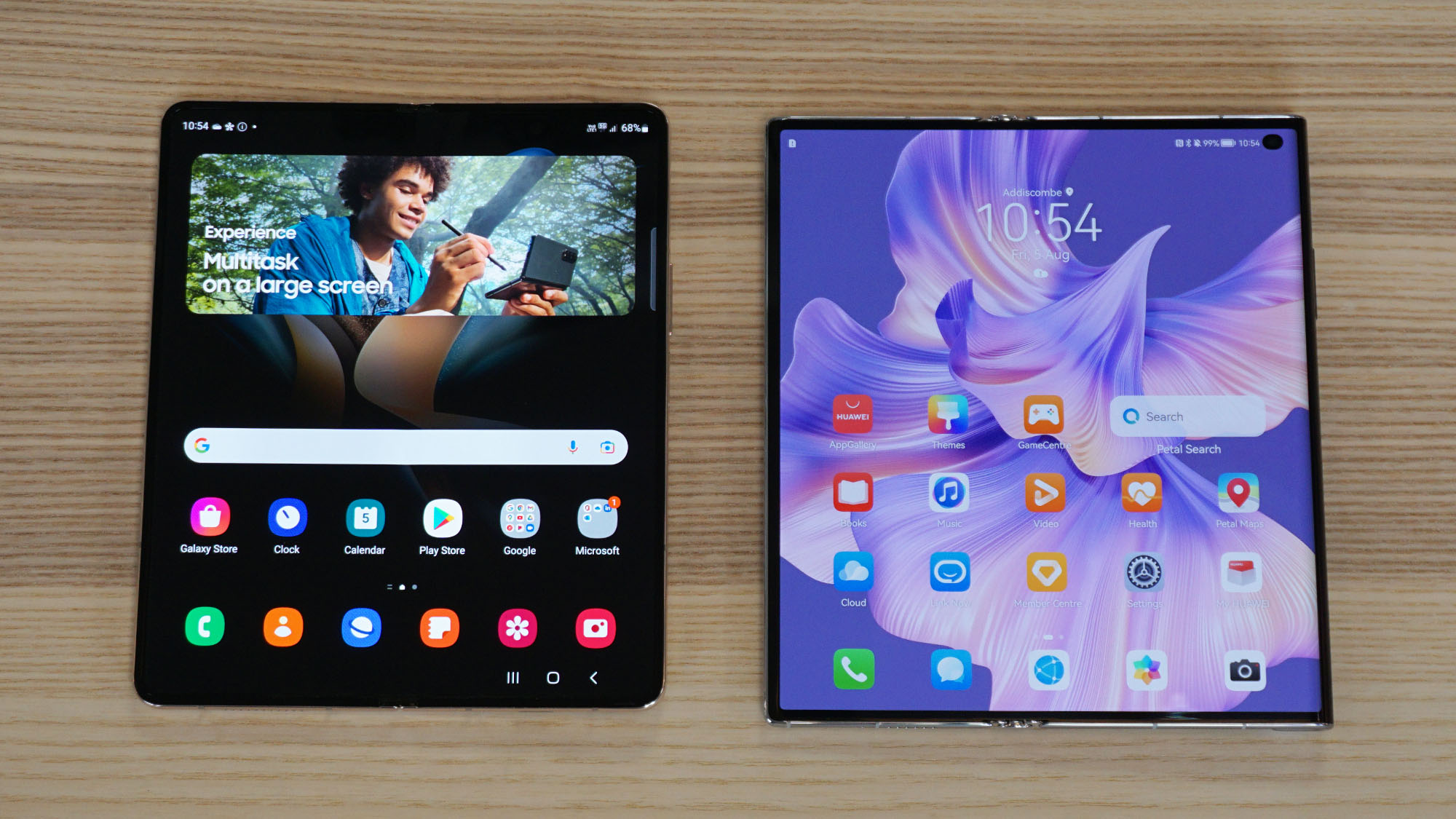
Sign up for breaking news, reviews, opinion, top tech deals, and more.
You are now subscribed
Your newsletter sign-up was successful
Recently, we’ve seen new leaks of a Google Pixel Fold. Since there isn’t much to talk about with phones, we talk about phones that fold. We’ve heard rumors of foldable phones from Apple and Google every year, ever since Samsung stepped up its commitment with a family of Galaxy Z foldables. This doesn’t mean anyone should place bets on an iPhone Flip phone from Apple.
Rumors of an Apple foldable are heating up. Behind closed doors, a representative from Samsung Mobile Experience was heard saying that Samsung expects Apple to launch a foldable iPad device within two years, by 2024.
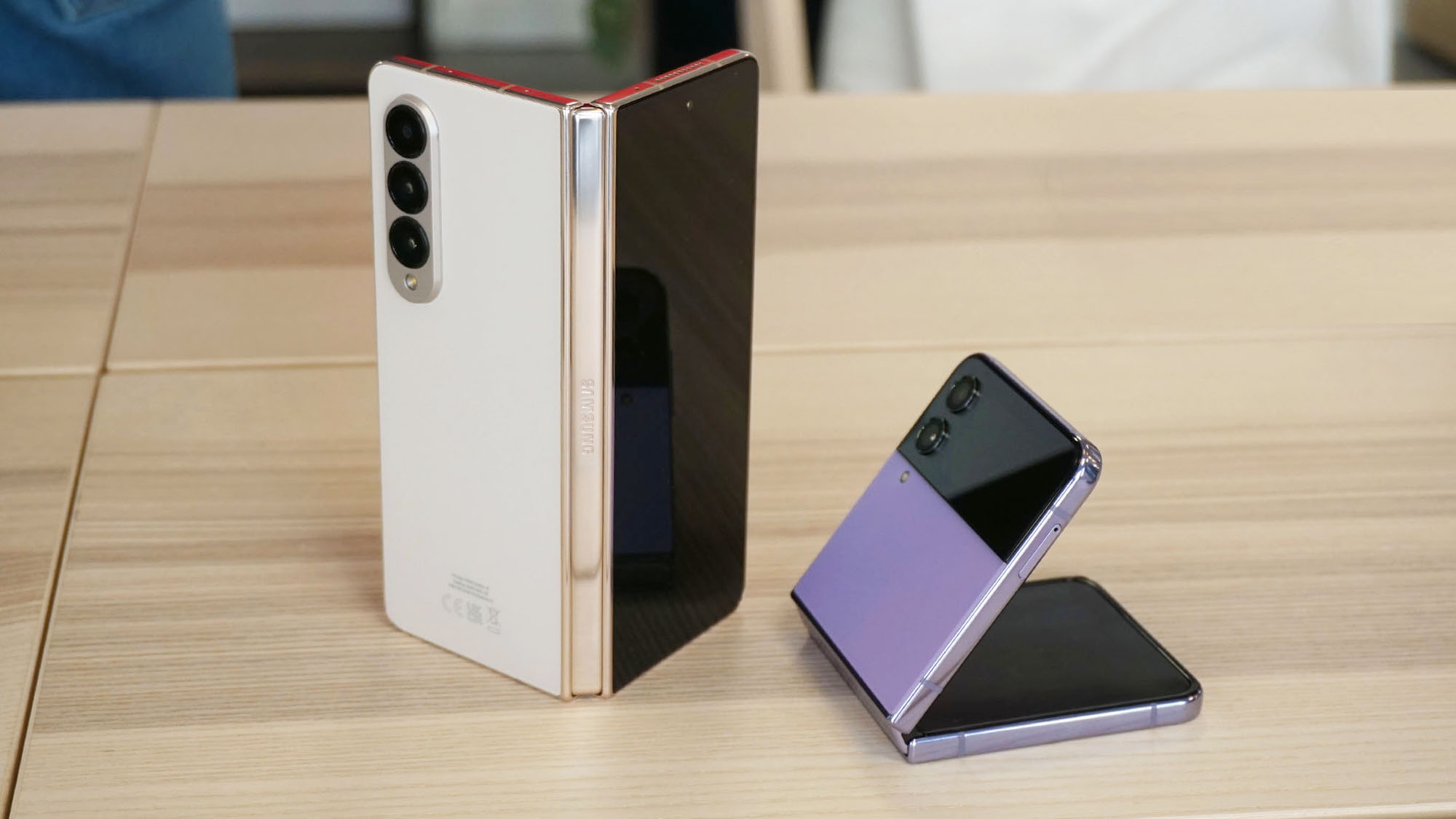
Samsung is also rumored to be producing the folding screen for a folding Google Pixel phone. It would therefore seem that comments from Samsung on Apple’s foldable plans could be considered gospel truth, but these are effectively two different Samsungs.
Samsung Display is owned by the Samsung Group, but it operates with an informational firewall between itself and other entities. This is precisely because it can sell displays to Samsung Mobile as well as Google’s Pixel group.
If Samsung Mobile knew everything about Samsung Display sales, it would have an obvious intelligence advantage over competitors. The executive speculating about a foldable iPad was from the Mobile group, not Samsung Display. He likely has excellent guesswork, but not hard facts.
Apple probably made an iPhone Flip we can’t have
Of course, Apple is presumably working on a folding tablet. Probably it also has a folding phone, and maybe even a folding watch. Why not? It’s one thing to make a one-off example of technology in-house. It’s another to launch a new device into the global market and supply chain.
The Samsung comments likely just mean that Apple could have a foldable iPad ready as early as 2024. Whether it would actually launch and sell such a device is another story.
Sign up for breaking news, reviews, opinion, top tech deals, and more.
Of course, it needs to improve something, anything at all, to keep selling new devices. Every year there must be an update that justifies the new product. We’re not sure folding screens will be the update Apple picks.
Phones don’t have any big surprises coming
There isn’t much more you can improve on a phone right now. New phone technology can’t sneak up on us easily. When new camera capabilities hit the market, we hear about them first from Qualcomm, which makes the image signal processors, or Sony, which makes the image sensors.
We hear about new folding and rolling screens from Samsung Display and LG Display before they are ever sold to phone manufacturers. New network technology gets demoed by mobile network providers. Even subtle advances in battery technology and data storage are announced first by someone else.
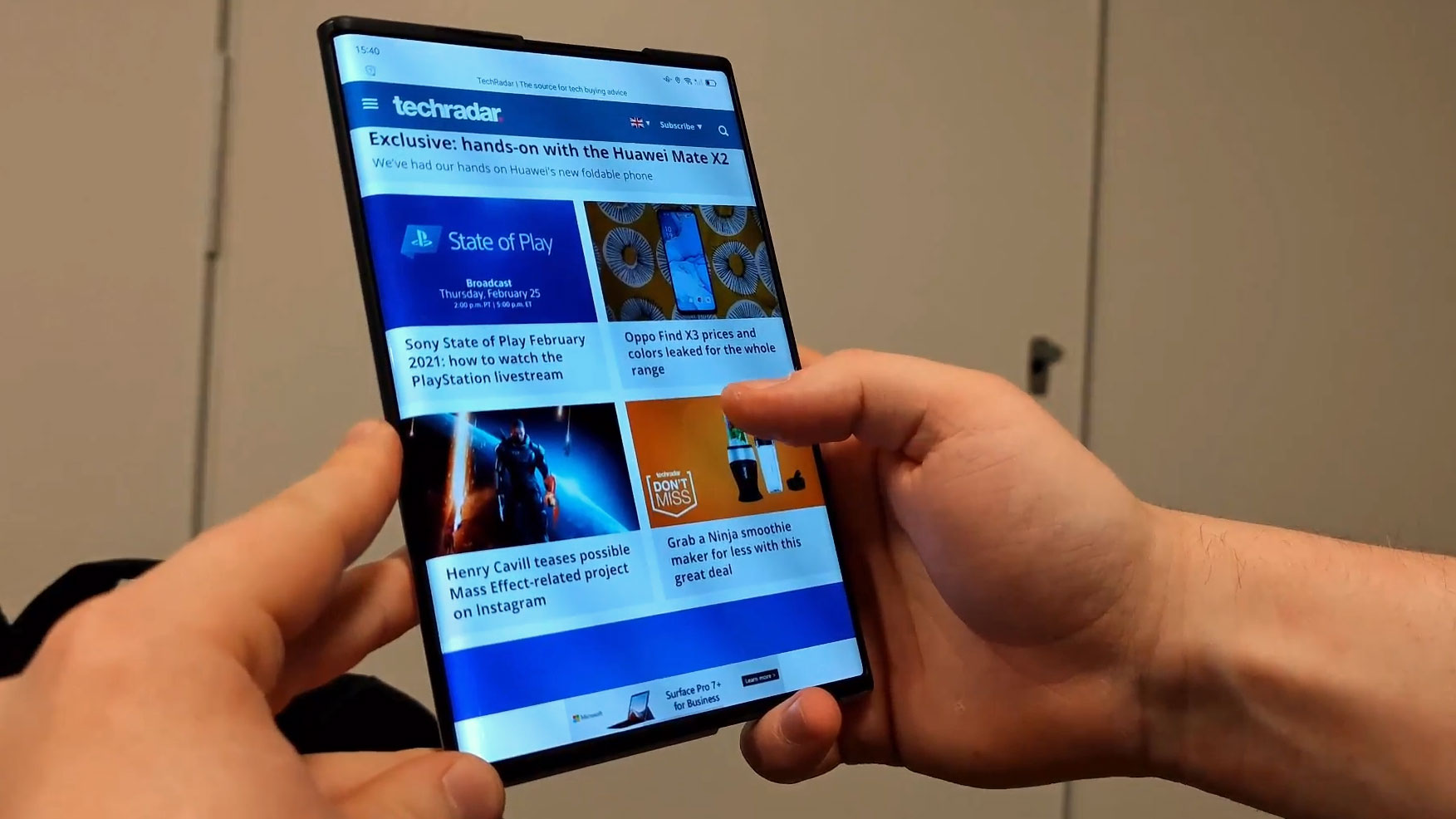
There are rollable phones coming, maybe. There are wearables for your face coming, eventually. There will be new wearable concepts for rings, glasses, clothing, and more. We’ve seen concepts and leaks. All of these rely on slow, steady advances in manufacturing and the underlying technology.
In other words, we won’t have a rollable phone until there is a factory that can produce them at a price manufacturers can swallow. We have no idea how expensive such a phone could be, but folding phones like the Galaxy Z Fold 4 are not embarrassed to inch closer to $2000 / £2000 / AU$3000 every year, and the market ignores them at that price.
New phones need to be new so they fold
Why do manufacturers bother? Folding phones make up less than 1% of the entire phone market, according to industry site The Elec. Samsung devotes one of its two major events to a device that most people will never even see in person, let alone consider buying. This year was the fourth year it showed commitment to the concept by launching the next generation with the Galaxy Z Fold 4.
The reason phone makers are folding phones is because that is all they can do for now
The reason phone makers are folding phones is because that's all they can do for now. They need to show advancement to keep people interested in the phone market. Folding is slowly becoming an affordable option, as the Galaxy Z Flip 4 (an arguably more appealing device than the Galaxy Z Fold 4) starts at $999.99 / £999 / AU$1,499, and carriers will give you one for free with the usual contract conditions.
Apple does not need to enter this market. There is nothing in Apple’s history that suggests it would sell a foldable phone soon. Maybe eventually, but it’s possible Apple could skip this trend entirely if it has an entirely new product category to focus on.
Here’s why we won’t see an iPhone Fold any time soon
First, Apple already sells an expensive phone, but it’s not the most expensive phone you can buy from a major phone maker. That dubious honor goes to the Samsung Galaxy S22 Ultra, an over-the-top phone that does literally everything except fold in half.
Samsung charges more for the Galaxy S22 Ultra because it includes a 10X zoom camera and a stylus with its own silo slot. Apple charges less for its most expensive phone, the iPhone 14 Pro Max, and balks at options most people won't use. If Apple thinks people won’t use a pen with a phone, it certainly knows that folding a phone is not a feature that has attracted buyers so far.
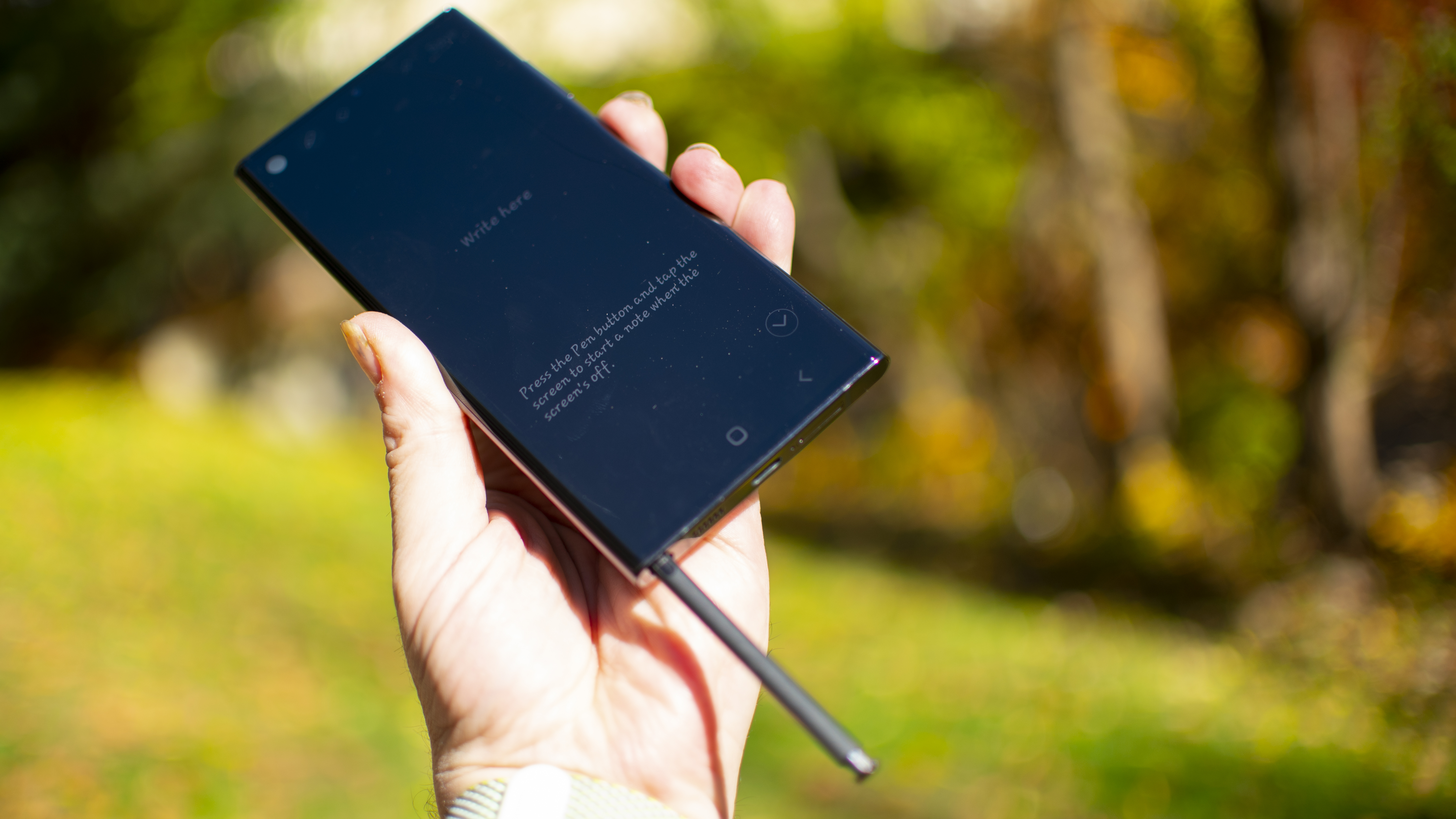
Second, Apple has a pattern for entering a new category. It never rushes to be first. The iPad was the first mainstream tablet, but the history of the iPhone shows that the iPad was the progenitor of Apple’s smartphone. Even then, it entered the market timidly, with a device that was essentially an enlarged iPhone with no risky features or design. The iPad also costs much less than the iPhone, unlike a foldable, which would be a financial risk in addition to a feature risk.
If folding phones become a success, if people start switching away from the iPhone to buy a foldable, Apple’s history shows it would then show interest. Then we’d finally get an iPhone Flip, along with grandiose pronouncements that make it seem like Apple invented the category, or at least that nobody cared about it until Apple cared.
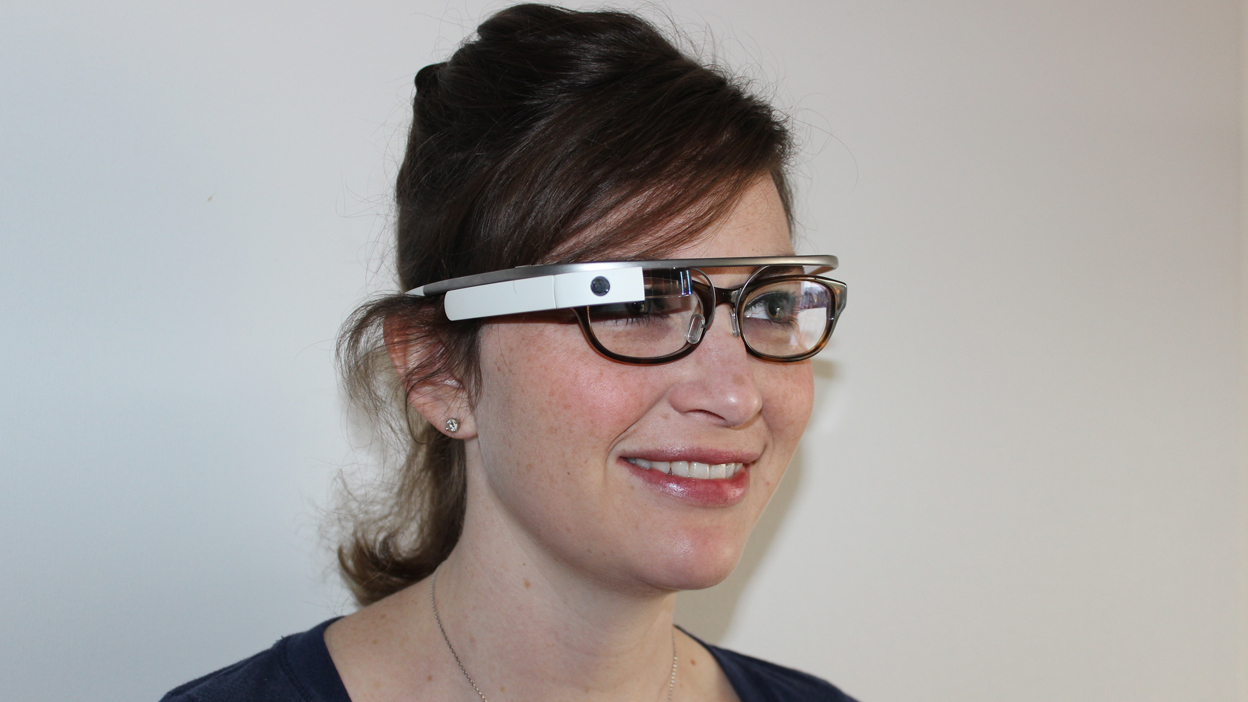
Finally, there may never be a moment when folding phones become the mainstream thing. Wearable tech, especially glasses, are waiting in the wings for their big moment on stage. There is a lot of innovation that needs to happen first. The glass screens are far from ready, and the battery life will be a major question.
Apple glasses will be the next thing not a foldable
Apple glasses feel inevitable, though, and Apple may decide that being a leader in the next big step in mobile computing is more important than wasting time on dying technology. How many years before we get glasses with screens that can seamlessly blend the transparent and opaque with our real world? Glasses that can last a full day? Glasses that look good and are comfortable enough that you’ll prefer them over your phone?
That calculation is what will determine whether we’ll see an iPhone Flip. Folding screens need to get much, much cheaper, so that foldable prices can come within striking distance of today’s phones. Interest has to exceed curiosity, so the phones can sell themselves without explanation or excuses.
More importantly, Apple will only make a folding phone if making glasses seems like a step too far. Apple could someday sell a folding iPhone, but that iPhone Flip is not inevitable. We may have a chance for something more exciting, instead.

Starting more than 20 years ago at eTown.com. Philip Berne has written for Engadget, The Verge, PC Mag, Digital Trends, Slashgear, TechRadar, AndroidCentral, and was Editor-in-Chief of the sadly-defunct infoSync. Phil holds an entirely useful M.A. in Cultural Theory from Carnegie Mellon University. He sang in numerous college a cappella groups.
Phil did a stint at Samsung Mobile, leading reviews for the PR team and writing crisis communications until he left in 2017. He worked at an Apple Store near Boston, MA, at the height of iPod popularity. Phil is certified in Google AI Essentials. His passion is the democratizing power of mobile technology. Before AI came along he was totally sure the next big thing would be something we wear on our faces.